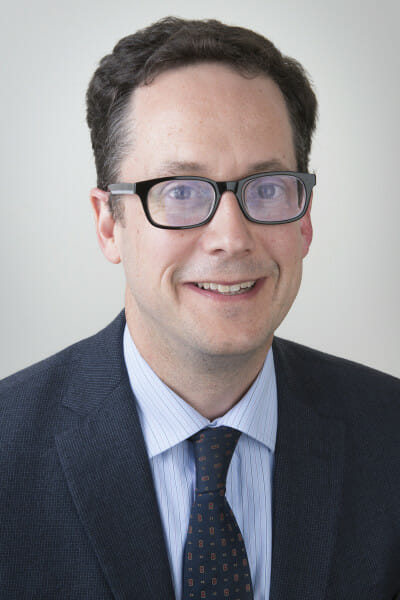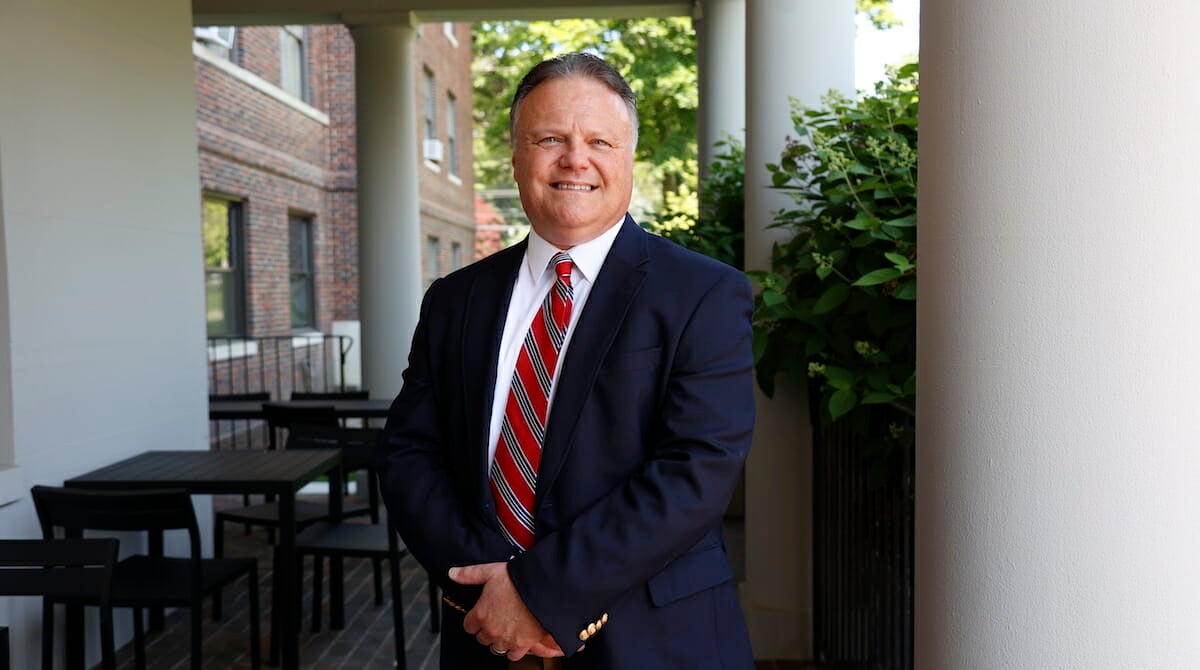Meet Provost Sean Condon
Dr. John “Sean” Condon was appointed to the role of provost and senior vice president for academic affairs after serving as interim provost for the 2020-2021 academic year.
 During his time as interim provost, Dr. Condon contributed to the College’s strategic plan, the development of the Agenda for the Future; and oversaw the Dean’s Council. He also served as a member of the President’s executive leadership group and executive leadership group and served on the Coronavirus Taskforce.
During his time as interim provost, Dr. Condon contributed to the College’s strategic plan, the development of the Agenda for the Future; and oversaw the Dean’s Council. He also served as a member of the President’s executive leadership group and executive leadership group and served on the Coronavirus Taskforce.
A member of the Merrimack community since 2005, Dr. Condon has held top leadership roles, including vice provost for undergraduate education and faculty affairs from 2019-2020, and interim dean of liberal arts from 2016 to 2019. Rising from the ranks of assistant professor to provost, he strongly believes in advancing diversity, equity and inclusion in terms of curriculum; hiring, supporting, and retaining faculty and staff; and attracting and retaining a diverse study body. Dr. Condon looks forward to continuing to work with faculty and staff to collectively and imaginatively engage with the challenges and opportunities facing the college as it embarks on the Agenda for the Future.
“By serving as provost and senior vice president for academic affairs, I will be able to play a meaningful role in advancing both the mission and purpose of the College and support and champion institutional goals that I believe in. Since my arrival at Merrimack more than a decade and a half ago, I have come to fully appreciate and admire the ability of the College to consistently welcome students, meet them where they are and help them reach their full potential.”
― Dr. Sean Condon
Provost and Senior Vice President for Academic Affairs
A history professor who has developed and taught courses ranging from race and slavery in the early modern Atlantic world through an environmental history of North America, Dr. Condon also served as chair of the history department and director of the international studies program. His historical research has centered on the ways that people strive for dignity, autonomy and community in times of profound social, economic and political change. Much of his scholarship has examined the efforts of enslaved people in the post-Revolutionary Upper South to resist family separation and strive for legal freedom through the process of manumission.
In addition to studying race and slavery, he has also re-examined the ways that economic and political divisions fueled a crisis of legitimacy for the newly independent United States. His book, “Shays’s Rebellion: Authority and Distress in Post-Revolutionary America,” was published by Johns Hopkins University Press in 2015. Currently, he is working on a synthetic history that examines the broad spectrum and evolution of labor obligations in the Early Modern Atlantic World.
The Responsibilities of the Office of the Provost
The provost and senior vice president for academic affairs is responsible to the President for planning, implementing and managing the College’s academic policies and for overseeing the institution’s academic expense budget.
As the chief academic administrator, the provost provides oversight for all personnel issues related to the educational programs of the College. The role works with the faculty senate executive committee representing the administration’s position on issues and items being considered by the faculty senate.
The provost is also responsible for advising the President on all major matters of resource allocation within the academic areas of the College, including:
- the hiring of new and replacement positions within the faculty
- decisions regarding sabbaticals
- tenure and promotion
- construction and other capital projects
- space allocation
The provost is the academic strategic planning leader of the College, is a member of the President’s cabinet and serves as the administrative liaison to the academic affairs committee of the board of trustees.

